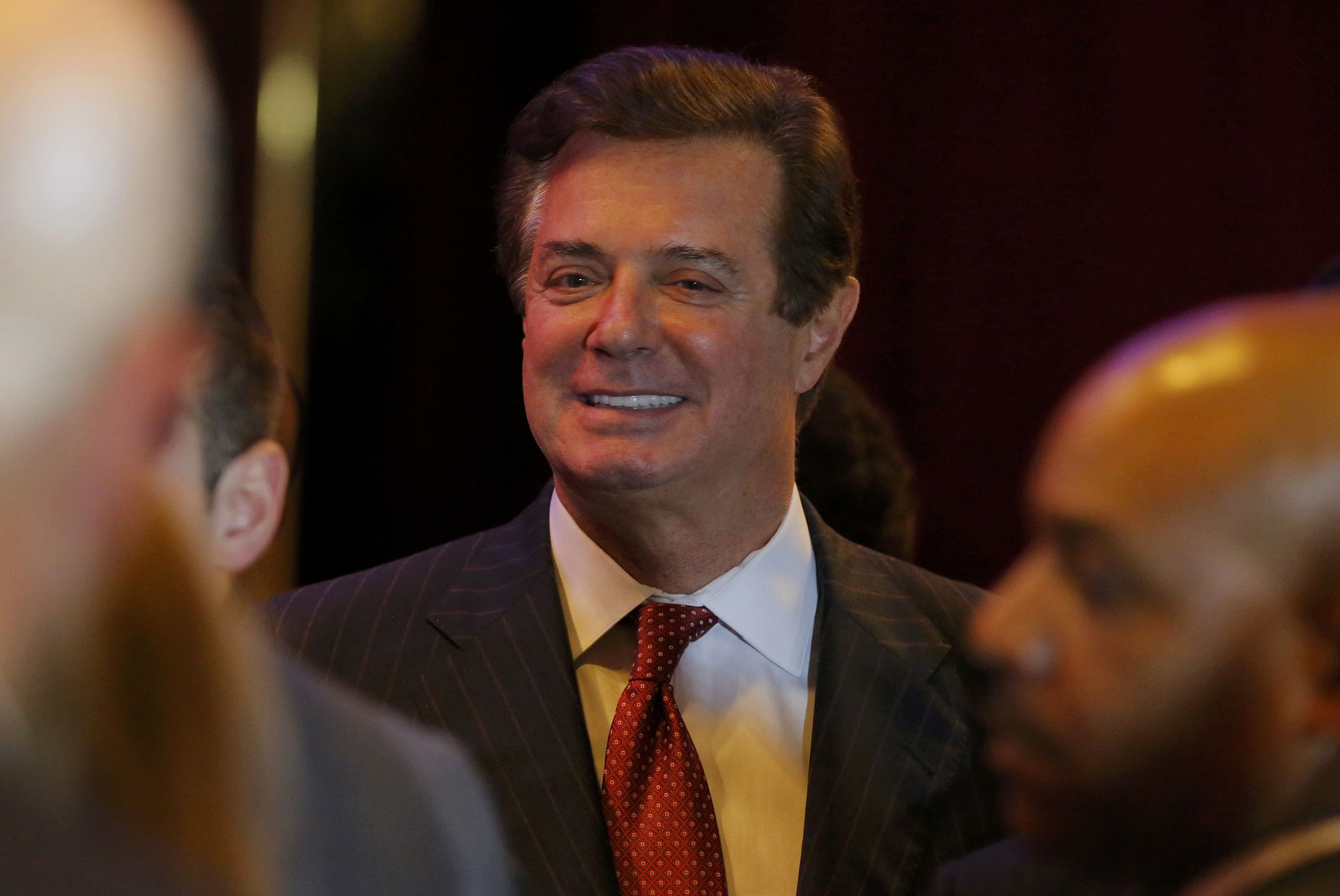
Attorney Kevin Downing's lawsuit in U.S. District Court says Mr. Mueller was appointed in May with a mandate to investigate suspected Russia-Trump campaign collusion in the hacking of Democratic Party computers, The Washington Times said.
The indictment, however, has nothing to do with the presidential campaign. The counts against Mr. Manafort go as far back as 2005 and deal with money he earned while a political consultant in Ukraine. That role ended in 2014, two years before Mr. Manafort joined the Trump campaign for a relatively brief stint as manager.
Read alsoEmbattled FBI admits it can't verify dossier claims of Russia, Trump campaign collusion – mediaThe lawsuit asks a District Court judge to throw out the indictment and order Mr. Mueller to cease investigating matters that preceded the campaign. It says Deputy Attorney General Rod Rosenstein, who appointed Mr. Mueller, did not follow Justice Department guidelines.
Mr. Downing discloses that Mr. Manafort was interviewed by the Justice Department and FBI in 2014 as a witness, not as a suspect, in a federal investigation of a former Ukrainian president.
Mr. Mueller resurrected the information three years later and used it to get a grand jury indictment.
Mr. Manafort is challenging Mr. Mueller at the same time that some Republicans are accusing the former FBI director of putting together a biased prosecution team dotted with lawyers who contributed campaign money to Democrats, including Hillary Clinton.
Andrew Weissmann, the prosecutor heading the Manafort case, cheered Sally Yates, an Obama holdover serving as acting attorney general, in an email after she refused to defend in court President Trump's travel ban on certain Muslim-majority nations.
Legal observers say Mr. Weissmann is playing hardball against Mr. Manafort in an effort to turn him into a prosecution witness against Trump people. The prosecutor oversaw an aggressive FBI pre-dawn raid on Mr. Manafort's Alexandria condo. Kathleen Manafort, Mr. Manafort's wife, was frisked in bed.
Legal sources say Mr. Mueller is likely to bring a new indictment charging Mr. Manafort with tax evasion. The existing indictment includes an allegation but not a formal charge.
Manafort supporters say he has no collusion information to share. They say the Justice Department reviewed Mr. Manafort's finances for years and never brought charges until Mr. Mueller put together his team of prosecutors.
The Manafort lawsuit names as defendants Mr. Mueller and Mr. Rosenstein, who appointed the special counsel after Attorney General Jeff Sessions bowed out of the Russia investigation.
The crux of the complaint revolves around the Justice Department regulations that created the special counsel post.
Under those regulations, Mr. Rosenstein gave Mr. Mueller a mandate to investigate "links and/or coordination between the Russian government and individuals associated with the campaign of President Donald Trump."
Mr. Rosenstein then allowed Mr. Mueller a wider berth, saying he could investigate "any matters that arose or may arise" from the Russia probe. That mandate, Mr. Downing argues, is not contained in the special counsel regulation.
Mr. Downing's lawsuit calls this "arbitrary, capricious, and not in accordance with the law."
He said he asked Mr. Rosenstein if he granted Mr. Mueller authority to investigate Mr. Manafort for issues not related to Russia, but he received no reply.
The special counsel regulations say that if an appointed prosecutor wants to investigate "new matters," then he must seek permission — in this case from Mr. Rosenstein, Mr. Downing argues.
"Those limitations prevent the special counsel from becoming an unaccountable roving commission, with virtually unlimited resources, that can delve into citizens' lives in search of criminality unrelated to the specific matters the special counsel was appointed to address," the lawsuit says.
The Manafort indictment does not mention any ties to Russia.
Mr. Downing says the Mueller investigation centers on lobbying work and tax filings that ended in 2014, well before Mr. Manafort joined the Trump campaign team.
"Those alleged dealings had no connections whatsoever to the 2016 presidential election or even to Donald Trump," the lawsuit says. "Nor were they uncovered in the course of the special counsel's probe into President Trump's campaign."
Mr. Downing describes Mr. Manafort's 2014 interview:
"On July 30, 2014, Mr. Manafort voluntarily met with DOJ prosecutors and FBI agents to discuss his offshore political consulting activities. During the interview, Mr. Manafort provided a detailed explanation of his activities in Ukraine, including his frequent contact with a number of previous U.S. Ambassadors in Kyiv and his efforts to further U.S. objectives in Ukraine on their behalf. He further discussed his offshore banking activity in Cyprus. Throughout the process, DOJ maintained that they were assisting the Ukrainian government in locating stolen assets. The investigation focused on the activities of a former Ukraine President and was closed soon after Mr. Manafort's interview.
"The Office of the Special Counsel charged Mr. Manafort with the very conduct he voluntarily disclosed to DOJ almost three years prior to the appointment of Mr. Mueller as Special Counsel."
Thus, Mr. Downing argues, the indictment did not stem from the Russia investigation but from a previous Justice Department inquiry.
The Mueller indictment charges that Mr. Manafort made "tens of millions of dollars" working in Ukraine, including for pro-Russian leader Viktor Yanukovych.
The indictment said that to "hide Ukraine payments from United States authorities" from 2006 to at least 2016 Mr. Manafort "laundered the money through scores of United States and foreign corporations, partnerships and bank accounts."
Mr. Downing said no laundering occurred; Mr. Manafort simply transferred funds from his Cypress account to American accounts, which are fully traceable by the Treasury Department.

